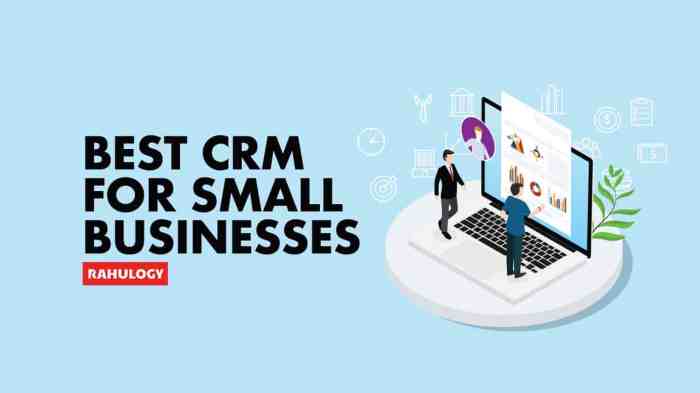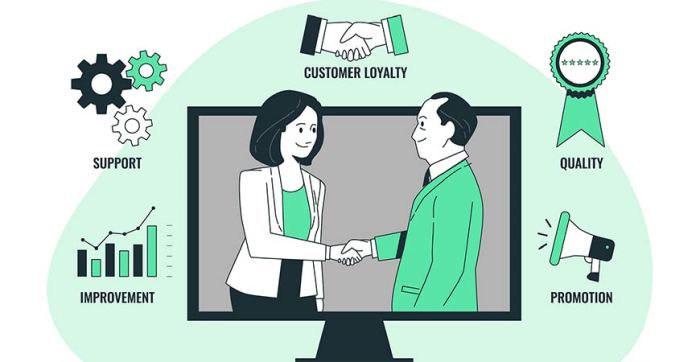Sales crm software for small business – In today’s competitive business landscape, efficient customer relationship management (CRM) is paramount for success. For small businesses, choosing the right sales CRM software can be the difference between struggling to keep up and experiencing explosive growth. This comprehensive guide will delve into the world of sales CRM software specifically designed for small businesses, helping you understand its benefits, features, and how to select the perfect solution for your needs.

Source: leadtrekker.com
Understanding the Importance of CRM for Small Businesses: Sales Crm Software For Small Business
Small businesses often operate with limited resources and personnel. A robust CRM system can significantly alleviate the pressure by streamlining various processes, improving efficiency, and ultimately boosting sales. Unlike larger corporations with dedicated teams for sales, marketing, and customer service, small businesses often rely on a smaller team to wear many hats. A CRM system acts as a central hub, organizing information and automating tasks, freeing up valuable time and resources.
Key Benefits of Sales CRM for Small Businesses:, Sales crm software for small business
- Improved Customer Relationship Management: Centralized customer data provides a 360-degree view of each client, enabling personalized interactions and better understanding of their needs.
- Enhanced Sales Productivity: Automating tasks like lead tracking, follow-ups, and reporting frees up sales teams to focus on closing deals.
- Increased Sales Revenue: By improving efficiency and customer engagement, a CRM system contributes directly to increased sales and revenue generation.
- Better Lead Management: Efficient lead tracking and nurturing helps convert more leads into paying customers.
- Improved Customer Retention: Personalized communication and timely follow-ups foster stronger customer relationships, leading to increased loyalty and repeat business.
- Data-Driven Decision Making: Comprehensive reporting and analytics provide valuable insights into sales performance, helping make informed business decisions.
Essential Features of a Small Business Sales CRM
While the ideal CRM will vary depending on your specific needs, several core features are essential for most small businesses:
Core CRM Features:
- Contact Management: Store and organize customer information, including contact details, purchase history, and interaction logs.
- Lead Management: Track leads from initial contact to conversion, automating follow-up processes and scoring leads based on their potential.
- Sales Pipeline Management: Visualize the sales process, track deals at each stage, and identify potential bottlenecks.
- Reporting and Analytics: Gain insights into sales performance, identify trends, and measure the effectiveness of sales strategies. Key metrics to track include conversion rates, average deal size, and sales cycle length.
- Task Management: Assign and track tasks, ensuring that all team members are aware of their responsibilities and deadlines.
- Communication Tools: Integrate with email, phone, and other communication channels for seamless interaction with customers.
- Integration Capabilities: Integrate with other business tools, such as email marketing platforms, accounting software, and e-commerce platforms.
- Mobile Accessibility: Access CRM data and manage tasks from anywhere, anytime, using a mobile app.
- Customer Support: Ensure the chosen CRM provider offers adequate support through documentation, tutorials, or dedicated customer service.
Choosing the Right Sales CRM for Your Small Business
Selecting the right CRM involves careful consideration of several factors:
Factors to Consider When Choosing a CRM:
- Budget: CRM software comes with varying price points. Consider your budget and choose a solution that offers the necessary features within your financial constraints. Many offer tiered pricing based on the number of users or features.
- Business Size and Needs: The complexity of your business operations will influence the features you require. A smaller business may only need basic contact management and sales pipeline tracking, while a larger business may require more advanced features like marketing automation.
- Ease of Use: The CRM should be intuitive and easy to use for your team. A complicated system can lead to low adoption rates and decreased efficiency.
- Scalability: Choose a CRM that can grow with your business. As your business expands, you’ll need a system that can accommodate increased data volume and user accounts.
- Integration Capabilities: Consider the integration capabilities of the CRM with other business tools you use, such as your email marketing platform, accounting software, and e-commerce platform.
- Customer Support: Reliable customer support is crucial, especially when dealing with technical issues or needing assistance with setup and configuration.
Popular Sales CRM Software Options for Small Businesses
The market offers a wide array of CRM solutions. Some popular options include:

Source: rahulogy.com
- HubSpot CRM: A popular and widely-used free CRM with a robust set of features. Offers paid versions with advanced capabilities.
- Zoho CRM: A comprehensive and affordable CRM solution suitable for small and medium-sized businesses.
- Salesforce Sales Cloud: A powerful and scalable CRM platform, although it can be more expensive and complex than other options.
- Pipedrive: A user-friendly CRM designed specifically for sales teams, known for its intuitive interface and focus on sales pipeline management.
- Freshsales: A modern and feature-rich CRM with a focus on automation and sales productivity.
It’s crucial to research and compare different CRM options before making a decision. Many offer free trials, allowing you to test the software and see if it meets your needs before committing to a paid subscription.
Implementing and Optimizing Your Sales CRM
Successfully implementing a CRM requires careful planning and execution. Here are some key steps:
Implementing and Optimizing Your CRM:
- Data Migration: Accurately transfer existing customer data into the new CRM system.
- User Training: Provide comprehensive training to your team on how to use the CRM effectively.
- Process Optimization: Adapt your sales processes to leverage the CRM’s capabilities.
- Regular Monitoring and Reporting: Track key metrics and make adjustments to your CRM strategy as needed.
- Continuous Improvement: Regularly evaluate the effectiveness of your CRM and make improvements to maximize its benefits.
Frequently Asked Questions (FAQ)
- Q: How much does sales CRM software cost? A: The cost varies greatly depending on the provider, features, and number of users. Some offer free plans with limited features, while others have tiered pricing structures.
- Q: Is CRM software right for my small business? A: If you struggle with managing customer data, tracking leads, or automating sales processes, a CRM can significantly benefit your business.
- Q: How long does it take to implement a CRM? A: Implementation time varies depending on the complexity of the system and the size of your business. It can range from a few weeks to several months.
- Q: What are the key metrics to track in a CRM? A: Key metrics include conversion rates, average deal size, sales cycle length, customer lifetime value, and customer churn rate.
- Q: Can I integrate my CRM with other business tools? A: Many CRMs offer integration capabilities with other business tools, such as email marketing platforms, accounting software, and e-commerce platforms.
Conclusion
Investing in the right sales CRM software can be a game-changer for small businesses. By streamlining processes, improving efficiency, and enhancing customer relationships, a well-chosen CRM can contribute significantly to your business’s growth and success. Take the time to research different options, consider your specific needs, and choose a solution that aligns with your budget and long-term goals.
Remember that continuous monitoring and optimization are key to maximizing the return on your CRM investment.
Call to Action
Ready to transform your sales process and unlock your business’s full potential? Explore the various CRM options available today and find the perfect fit for your small business. Start your free trial now and experience the benefits firsthand!
Clarifying Questions
What is the average cost of sales CRM software for small businesses?
Costs vary greatly depending on features, user numbers, and vendor. Expect to find options ranging from free plans with limited functionality to several hundred dollars per month for more comprehensive solutions.
How long does it typically take to implement a sales CRM?

Source: jumpstartmag.com
Implementation time depends on the complexity of the software and the size of your business. Simpler systems can be set up within days, while more complex integrations might take several weeks.
Can I integrate my existing email marketing software with a CRM?
Many CRM platforms offer seamless integration with popular email marketing services, allowing for automated email campaigns and better tracking of customer engagement.
What are some key features to look for in a small business CRM?
Essential features include contact management, lead tracking, sales pipeline visualization, reporting and analytics, and ideally, mobile accessibility.
